 Menu
Menu
 Menu
Menu
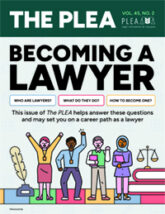
Who are lawyers? What do they do? How to become one? This issue of The PLEA helps answer these questions and may set you on a career path as a lawyer.

This issue of The PLEA helps us make sense of the modern landscape of satirical fake news. It explores the many meanings of the term “fake news,” introduces popular sources of satirical fake news in Canada and abroad, discusses some reasons why satirical fake news can fool us, and considers if laws are needed to help rein in the sometimes fun but sometimes dangerous phenomena of fake news. Suitable for most any reader, FAKE NEWS! fulfills several indicators in Saskatchewan’s Media Studies 20 curriculum.

This issue of The PLEA will help answer several introductory questions about renting your first home.
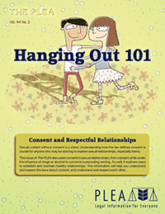
This issue of The PLEA examines healthy relationships, dating violence, and sexual assault.
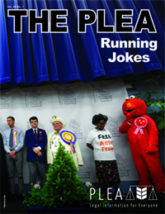
This issue of The PLEA explores the right to run for office. In particular, it looks at people who have made satire a part of their election bid. Ideal for most any reader, Running Jokes fulfills several requirements of Saskatchewan’s Social Studies 30 and English Language Arts 30 curricula.
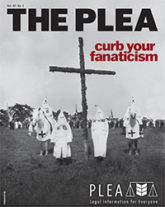
What does it mean to say that someone is a fanatic? Are all fanatics necessarily bad? Are we at risk of becoming fanatics ourselves? What can happen if fanatics get their hands on the levers of power?
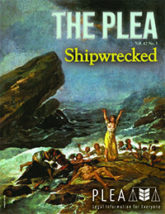
This issue of The PLEA examines how shipwreck survivors set up their castaway societies.
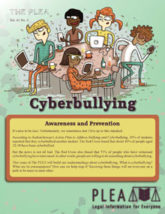
This issue of The PLEA builds on our understandings of cyberbullying.
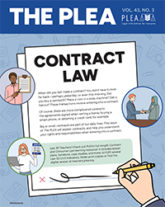
Big or small, contracts are part of our daily lives. This issue of The PLEA will explain contracts, and help you understand your rights and responsibilities when entering into a contract.
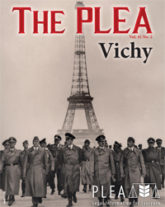
What was Vichy France? How was it created? Who fought against it? And why are the lessons of Vichy relevant today? Ideal for most any reader, Vichy fulfills several requirements in Saskatchewan’s History 20 curriculum. It will also be of interest to people curious about the history of World War II.
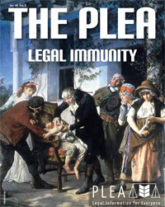
Where did vaccines come from? How did they help free us from so many diseases? And what role has the law played in their development and use?
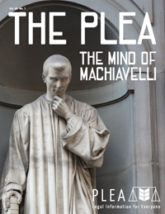
Who was Niccolò Machiavelli? What drove his unorthodox thoughts? And why are his works still relevant today?
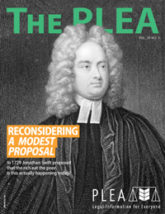
In 1729 Jonathan Swift proposed that the rich eat the poor. Is this actually happening today?

This issue of The PLEA considers the ancient Greek origins of direct democracy, the history of direct democracy in Saskatchewan, direct democracy in action, and how to make better democratic decisions.
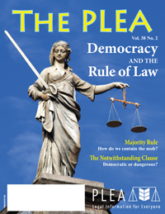
This issue of The PLEA considers how the rule of law balances the seemingly contradictory concepts of order and freedom in a democracy.
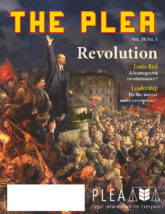
Ideal for most any reader, Revolution is specifically designed to fulfill several requirements across Saskatchewan’s social science curricula. It will also be of particular interest to people curious about laws, social change, and ideology.
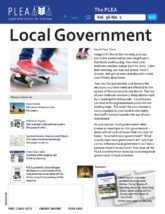
This issue of The PLEA introduces municipal government.
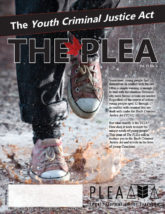
This issue of The PLEA is an introduction to the Youth Criminal Justice Act.
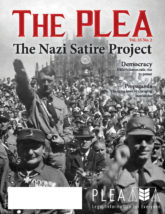
This issue of The PLEA explores how Nazis used satire to gain public support for their changes to German laws and social systems.
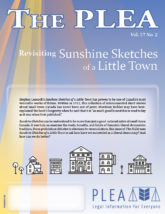
This issue of The PLEA uses Sunshine Sketches of a Little Town to ask how have we succeeded as a liberal democracy? And how can we do better?
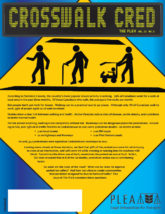
This issue of The PLEA looks at the law from a pedestrian’s perspective, from the rules of the road to neighbourhood design.
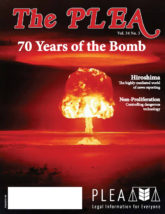
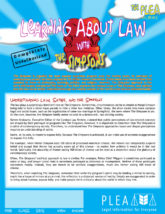
This issue of The PLEA takes advantage of students’ familiarity with The Simpsons to better understand law-related concepts.
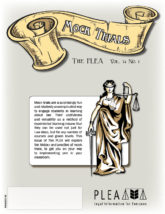
This issue of The PLEA is a how-to guide for implementing mock trials.
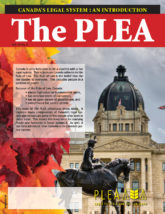
This issue of The PLEA introduces various elements of Canada’s legal system, including government, the police, and the courts.
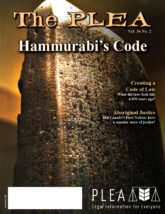
This issue of The PLEA introduces Hammurabi's Code, the oldest nearly-compete set of written laws.